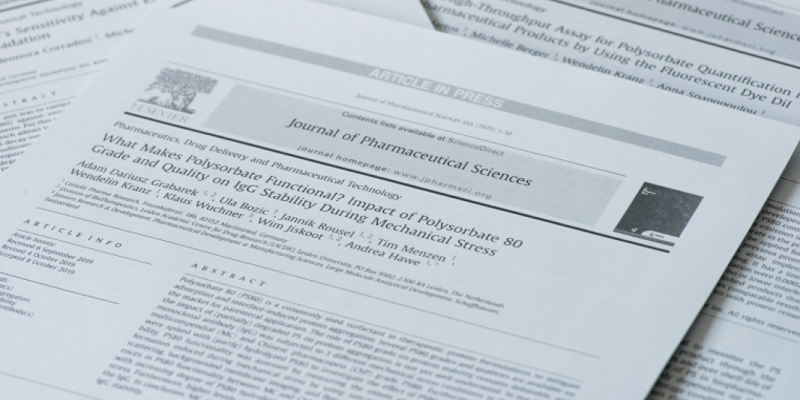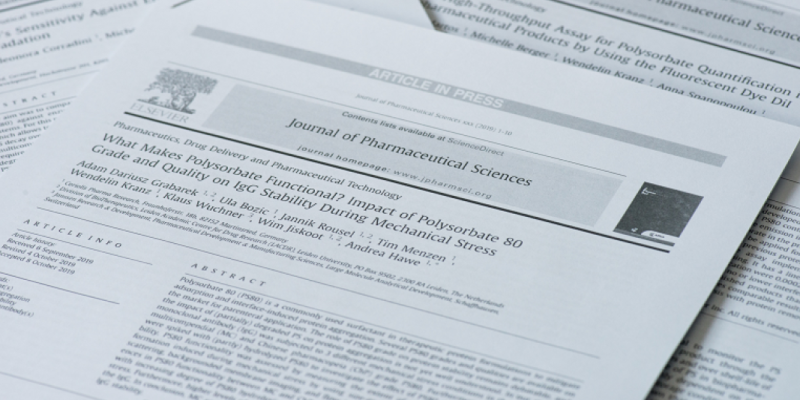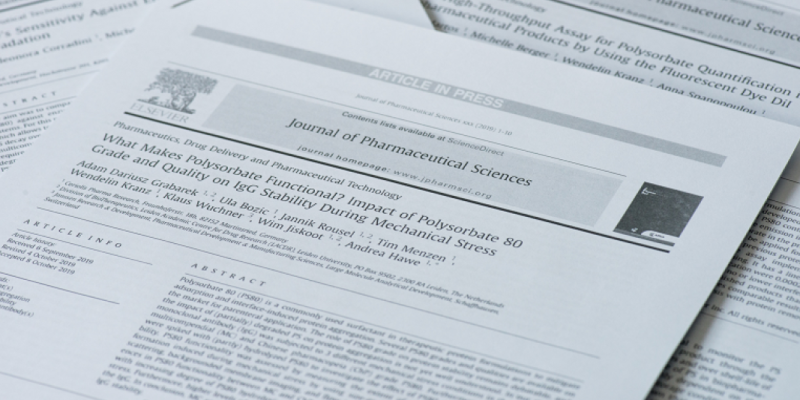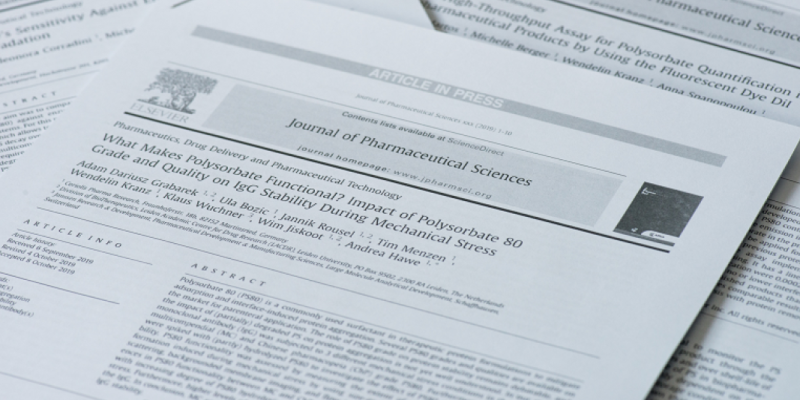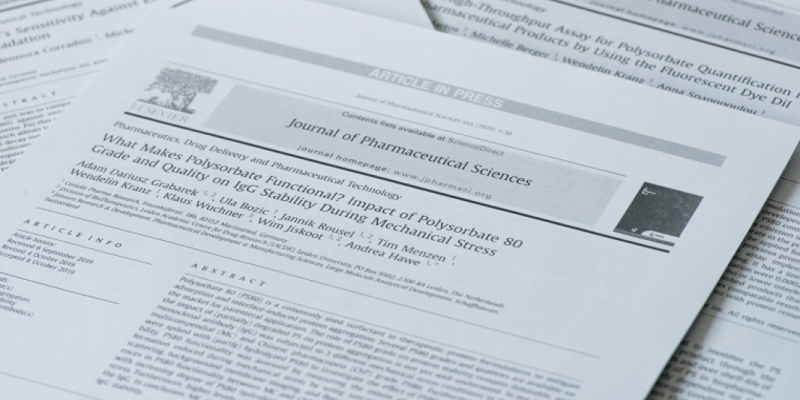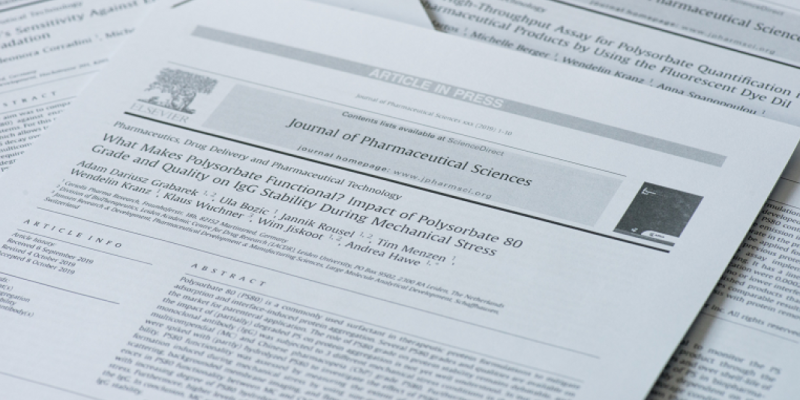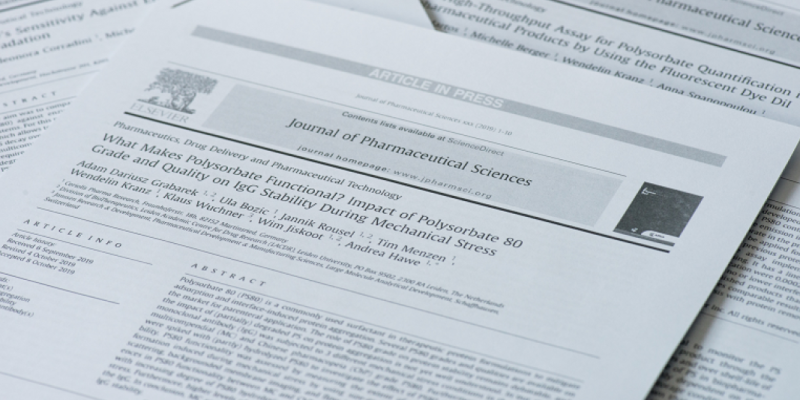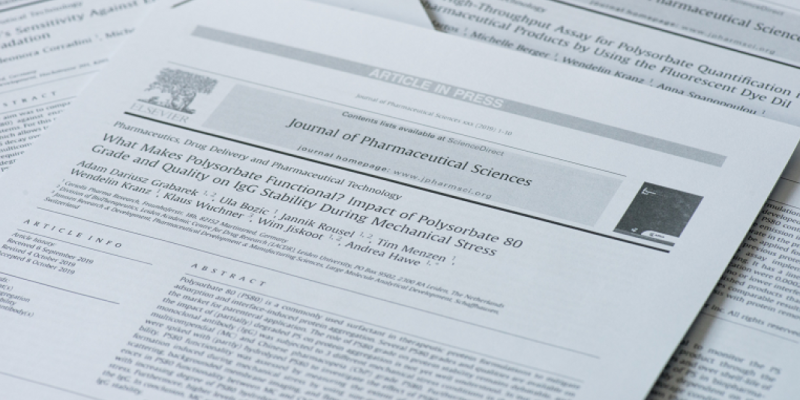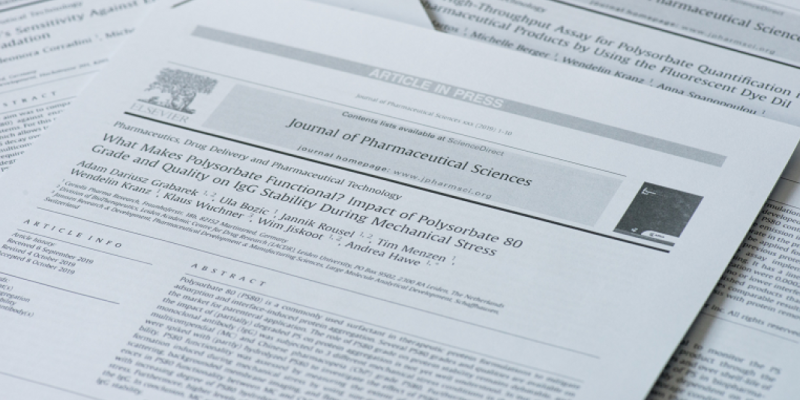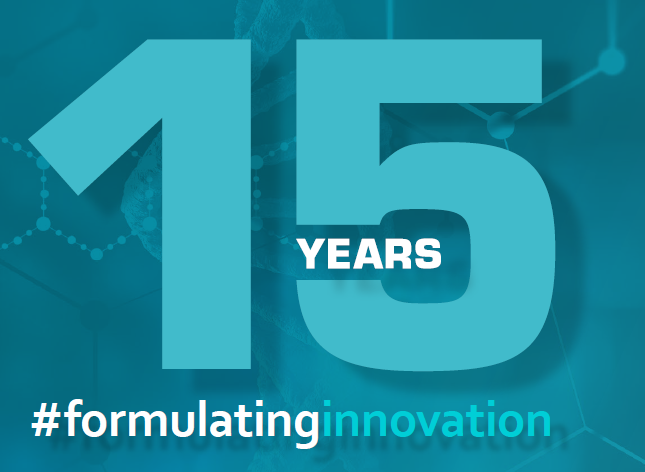Stress Factors in Monoclonal Antibody Drug Substance Production Processes: Critical Assessment of Impact on Product Quality and Control Strategy.
J Pharm Sci. 2020 Jan
The success of biotherapeutic development heavily relies on establishing robust production platforms. During the manufacturing process, the protein is exposed to multiple stress conditions that can result in physical and chemical modifications. The modified proteins may raise safety and quality concerns depending on the nature of the modification. Therefore, the protein modifications potentially resulting from various process steps need to be characterized and controlled. This commentary brings together expertise and knowledge from biopharmaceutical scientists, and discusses the various manufacturing process steps that could adversely impact the quality of drug substance (DS). The major process steps discussed here are commonly used in monoclonal antibody production using mammalian cells. These include production cell culture, harvest, antibody capture by protein A, virus inactivation, polishing by ion-exchange chromatography, virus filtration, ultrafiltration-diafiltration, compounding followed by release testing, transportation and storage of final DS. Several of these process steps are relevant to protein DS production in general. The authors attempt to critically assess the level of risk in each of the DS processing steps, discuss strategies to control or mitigate protein modification in these steps, and recommend mitigation approaches including guidance on development studies that mimic the stress induced by the unit operations.
J Pharm Sci. 2020 Jan


